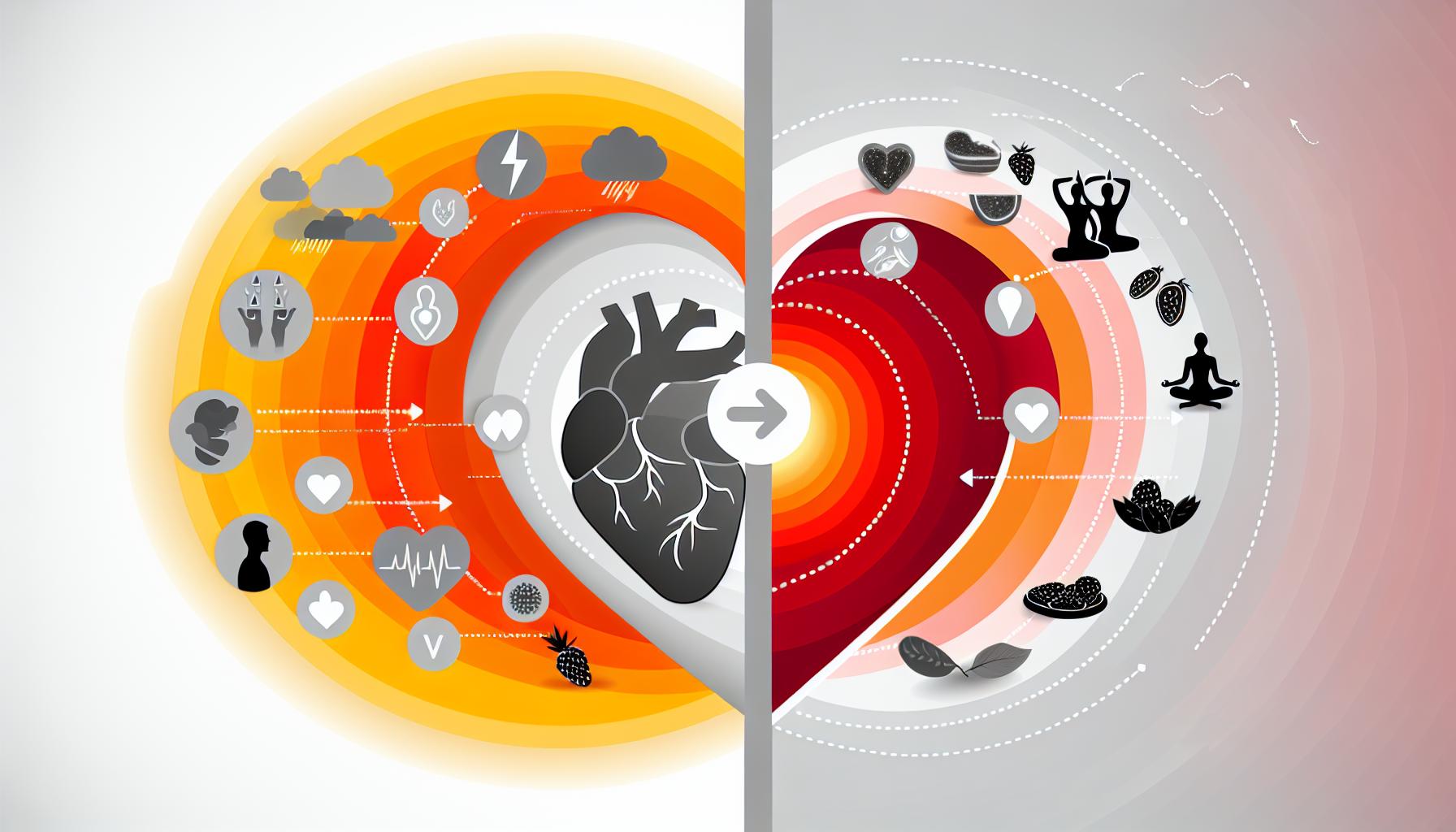.loader { border: 16px solid #f3f3f3; border-top: 16px solid #3498db; border-radius: 50%; width: 120px; height:…

The Impact of Stress on Heart Health: Strategies for a Balanced Lifestyle.
The Impact of Stress on Heart Health: Strategies for a Balanced Lifestyle
Stress is an inevitable part of life. It can come from work, relationships, finances, or any number of other sources. While some stress is normal and even healthy, chronic stress can have a serious impact on our physical health, particularly on our heart.
The link between stress and heart health is well-established. When we are under stress, our bodies release hormones like adrenaline and cortisol, which can increase blood pressure, raise cholesterol levels, and cause inflammation in the arteries. Over time, this can lead to heart disease, heart attacks, and other serious cardiovascular issues.
It’s important to recognize the signs of stress and take steps to manage it effectively. Here are some strategies for maintaining a balanced lifestyle and protecting your heart health:
1. Practice Stress-Relieving Techniques
There are many techniques that can help reduce stress and promote relaxation, such as meditation, deep breathing exercises, yoga, tai chi, and mindfulness. Find what works best for you and make it a regular part of your routine.
2. Get Regular Exercise
Exercise is not only good for your physical health but also your mental health. Regular physical activity can help reduce stress, lower blood pressure, and improve overall heart health. Aim for at least 30 minutes of moderate exercise most days of the week.
3. Eat a Healthy Diet
Eating a diet rich in fruits, vegetables, whole grains, lean proteins, and healthy fats can support heart health and reduce the impact of stress on your body. Limiting processed foods, sugary drinks, and excessive caffeine can also help.
4. Get Plenty of Sleep
Adequate sleep is crucial for overall health, including heart health. Aim for 7-9 hours of quality sleep each night to help your body recover from stress and recharge for the day ahead.
5. Connect with Others
Maintaining strong social connections can help reduce stress and improve overall well-being. Make time for friends and family, join a club or group, or volunteer in your community to foster meaningful relationships.
By incorporating these strategies into your daily life, you can better manage stress and protect your heart health. Remember, it’s important to prioritize self-care and take steps to reduce stress whenever possible.
For more information and tips on improving your overall health and well-being, check out our past blog post on The Link Between Stress and Digestive Health: Tips for a Balanced Lifestyle. You might also be interested in exploring other topics on our website.
If you need further assistance or have any questions, please don’t hesitate to contact us. We are here to help you on your journey to a healthier and happier life.


Comments (0)